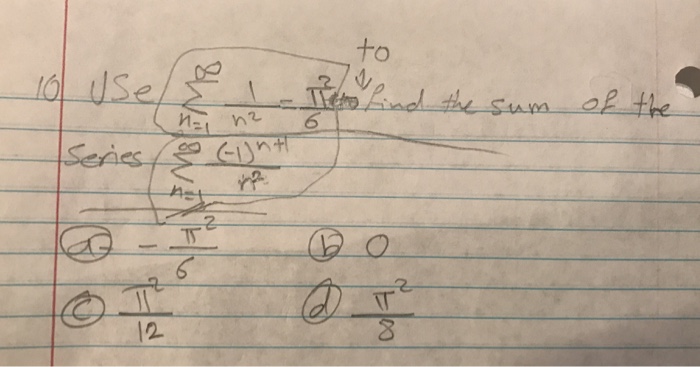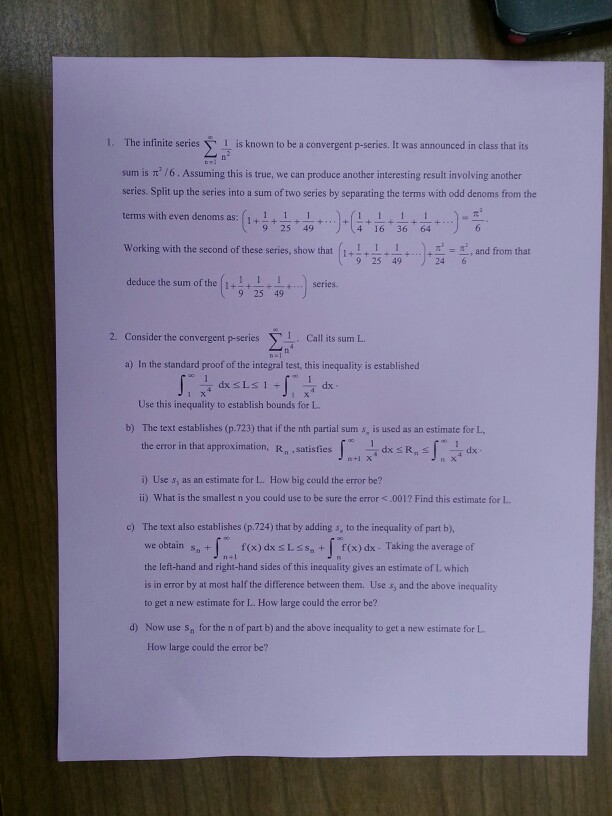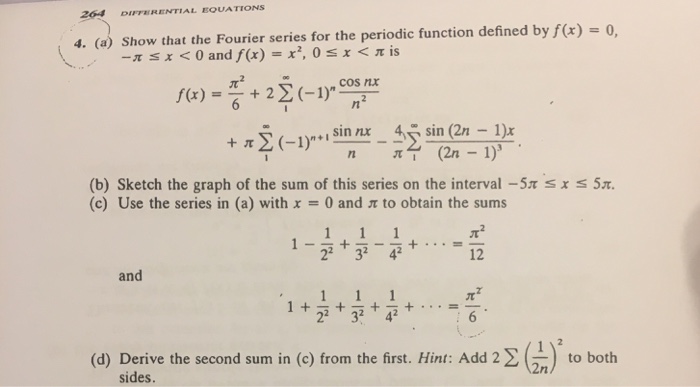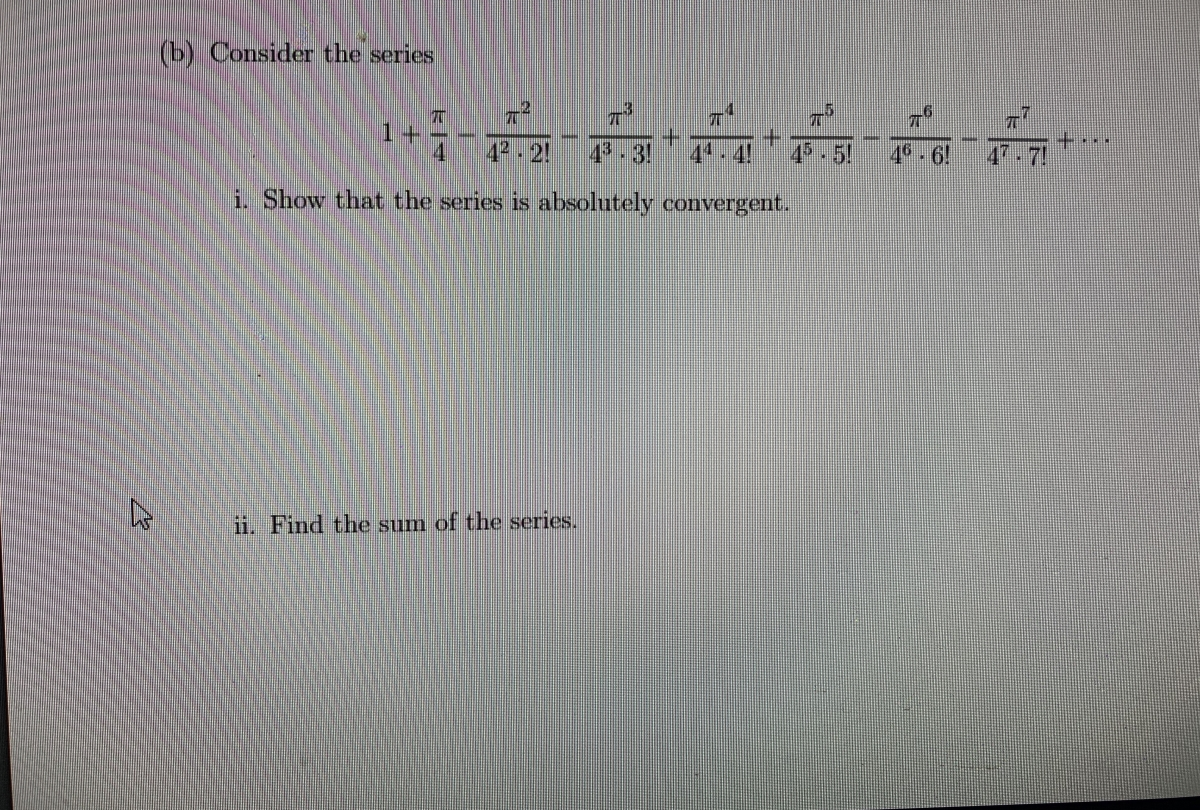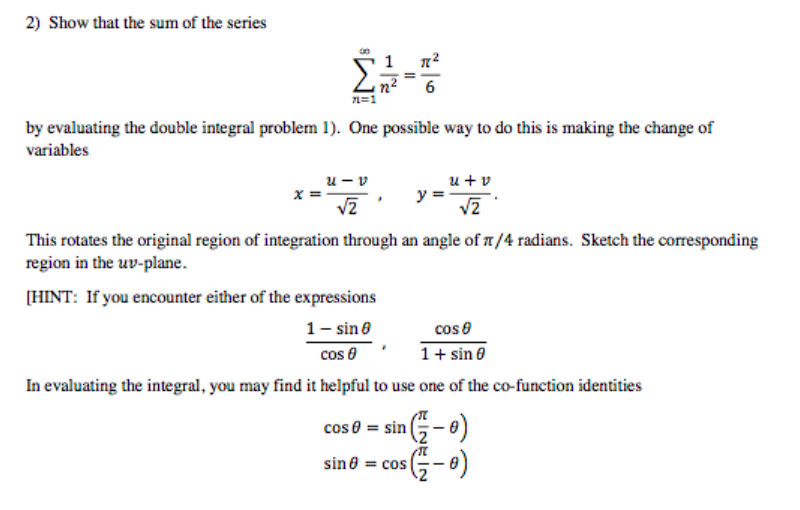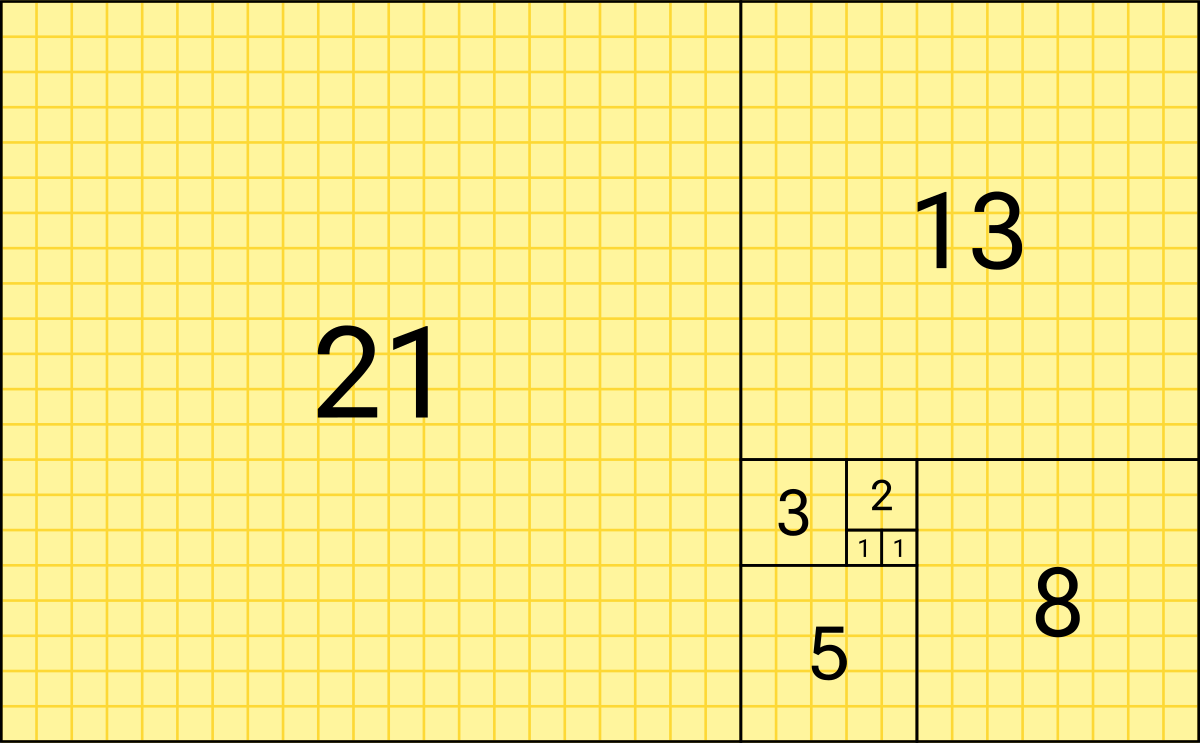
Ankur Handa on Twitter: "@InertialObservr If you plug t = 1/pi in the last two equations you arrive at the result. This one extends from the Basel problem also used to obtain

sequences and series - Why does the sum of inverse squares equal $\pi^2/6$? - Mathematics Stack Exchange

Given that `sum_(n=1)^oo 1/n^2=pi^2/6 and sum_(n=1)^oo 1/(n^2+8n+16)=pi^2/a-b` where a in `N ... - YouTube

sequences and series - Using roots of unity to prove that $\cos\frac{\pi }{2n}\cos\frac{2\pi}{2n}\cdots\cos\frac{(n-1)\pi}{2n}=\frac{\sqrt{n}}{2^{n-1}}$ - Mathematics Stack Exchange

Interesting approach proof sum 1/n^4= pi^4/90. No Fourier expansion, no Taylor series. No calculus - YouTube
What's an intuitive explanation of the following mathematical fact: [math]\displaystyle \sum_{n=1}^{\infty}{\frac{1}{n^2}} = \frac{\pi^2}{6}[/math]? - Quora




